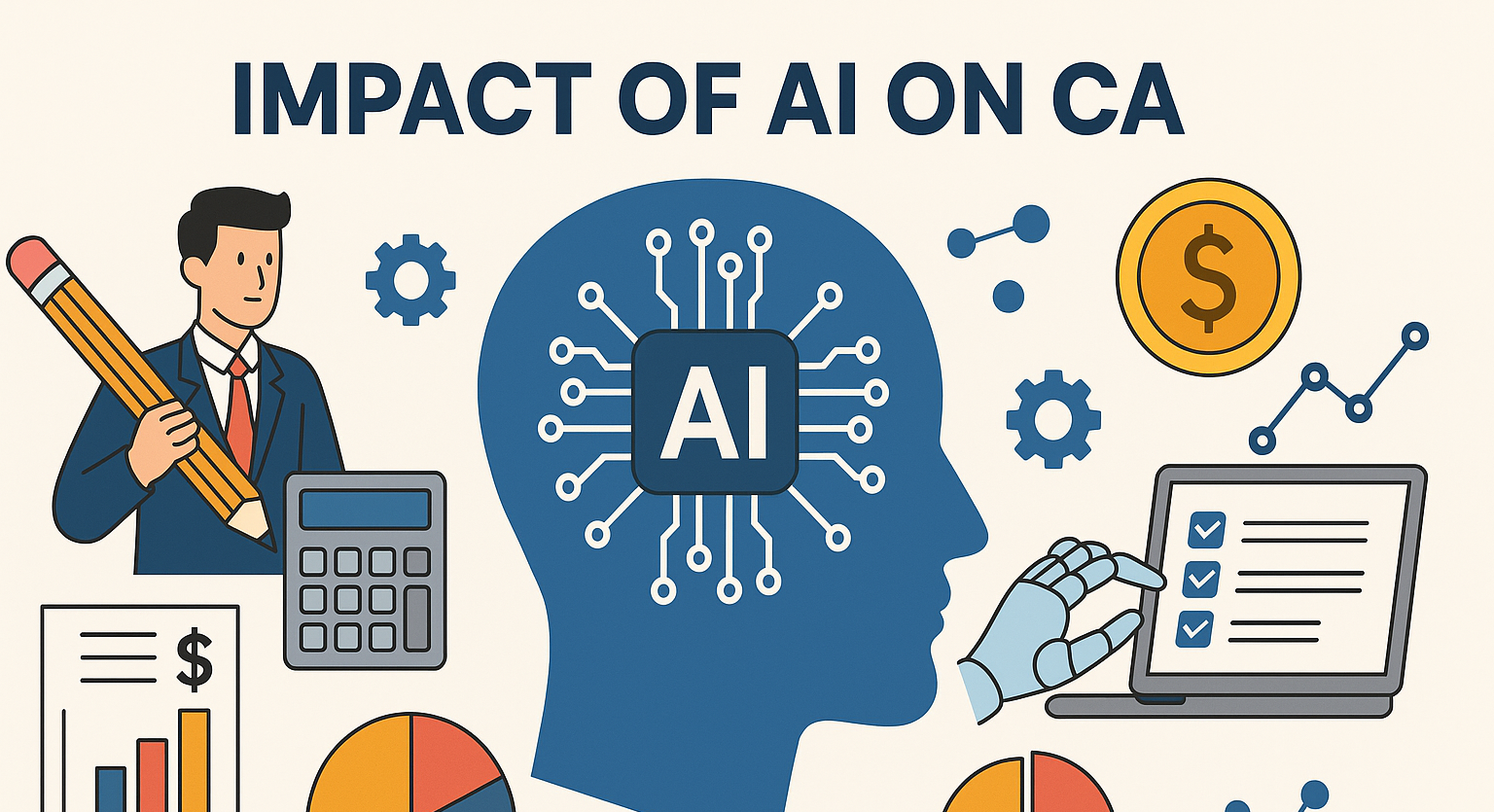In the era of digital transformation, Artificial Intelligence (AI) is leaving no industry untouched—including the highly specialized field of Chartered Accountancy (CA). Traditionally characterized by manual bookkeeping, compliance tasks, and meticulous audit processes, CA services are now experiencing a paradigm shift due to the integration of AI technologies. From automating repetitive tasks to enhancing decision-making, AI is redefining how chartered accountants operate, deliver value, and engage with clients.
1. Automation of Routine Tasks
One of the most immediate impacts of AI in the CA domain is the automation of routine, rule-based tasks. Activities such as data entry, invoice processing, and ledger management—once time-consuming and error-prone—can now be handled by AI-powered software with remarkable speed and accuracy. This not only reduces operational costs but also frees up time for CAs to focus on higher-value advisory services. Robotic Process Automation (RPA), a subset of AI, is increasingly used to handle tasks like GST return filing, bank reconciliations, and generation of financial statements. These bots can work 24/7, ensuring faster turnaround times and improved client satisfaction.
2. Enhanced Audit and Assurance
Auditing has traditionally involved manual sampling and checking of financial records. AI transforms this process by analyzing entire datasets instead of limited samples, thus offering deeper insights and higher levels of accuracy. Tools powered by machine learning can detect anomalies, flag suspicious transactions, and assess risk more effectively than traditional methods. Forensic accounting has particularly benefited from AI. Fraud detection tools can now identify patterns of irregular behavior across vast datasets, making audits more thorough and proactive rather than reactive.
3. Smarter Compliance and Taxation
AI is playing a pivotal role in simplifying complex tax regulations and compliance requirements. AI-enabled platforms can monitor changes in laws, interpret regulations, and apply them to a client’s unique financial situation. This is especially useful in a country like India where frequent changes in GST laws or income tax rules can be difficult to track manually. Tax bots are now capable of preparing and even filing tax returns with minimal human intervention. This helps CA firms manage compliance for a larger number of clients without compromising accuracy or timelines.
4. Advanced Data Analytics and Forecasting
AI empowers CAs with advanced analytics and predictive tools. These systems analyze historical data to forecast cash flows, budget requirements, and financial risks. Such insights enable accountants to offer strategic business advice to clients, transitioning from number crunchers to business partners. CAs can also use AI tools for scenario planning and “what-if” analysis, helping businesses navigate uncertainties with data-backed decision-making.
5. Personalized Client Advisory Services
With AI handling the backend tasks, CAs can shift their focus to providing more personalized and strategic advice. AI algorithms can analyze a client’s financial behavior, market trends, and industry data to generate tailored recommendations for wealth management, investment, and business planning. This enhances client engagement and positions CA firms as forward-thinking advisors rather than just compliance officers.
6. Challenges and Ethical Considerations
Despite its benefits, AI integration is not without challenges. Data privacy, cybersecurity, and ethical concerns surrounding algorithmic bias must be addressed. Moreover, there’s a need for continuous upskilling among CAs to effectively work alongside AI tools. CA Firms must also be cautious not to over-rely on technology. Human judgment remains essential, especially when interpreting complex financial scenarios or making strategic decisions.
Conclusion: A New Era of CA Practice
The integration of AI in CA services is not a threat but an opportunity—an opportunity to evolve, add greater value, and redefine professional relevance. While automation might reduce the need for manual labor, it simultaneously amplifies the role of accountants as strategic advisors. Forward-looking CA firms that embrace AI will not only improve efficiency and accuracy but also build stronger, future-ready practices.
Chartered Accountancy in the age of AI is no longer just about balancing books—it’s about balancing innovation with insight.





Test message